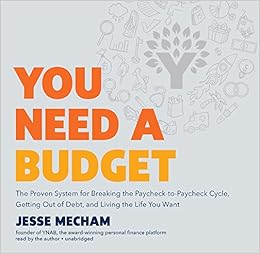

Remember, all the little things add up so make your budget as detailed as possible. Get a gage of how much everything costs so that you can better budget for this in the future. If you’ve never had to do grocery shopping before, a good first step is to just hit the grocery store with a list of necessary items you need to buy weekly. If you’re in a big metropolitan city, that number could be a lot higher.Īlso think about your food costs, which will probably be your second biggest expense. If you’re trying to figure out how much to spend on rent, a good rule of thumb is 30% of your gross income, but that also depends on where you will be living. This includes the big items, like rent, all the way to the little things, like toilet paper. Whether it’s your first time living away from your parents or you’ve lived on your own since forever, you need to make sure you understand what all your expenses will be. It’s important to know what your true net or take-home income will be so that you can properly budget.

This can take up a very large percentage of your gross pay, on average 25%. When you get your first pay stub, you’ll see that many expenses are deducted from your paycheck, such as state and federal taxes, social security income, and health insurance (just to name a few). Does that mean you’ll be taking home a little over $3,300 a month? Let’s say you’ll be making $20 an hour or roughly $40,000 annually. When you get your first job, you will get a salary offer. To get you started, let me give you four steps to make things easier.
You need a budget book how to#
Even if your financial situation is shaky, you will be spending time fixing the problem and not trying to find out what the issue is.īut David, maintaining a budget is so hard!īudgeting and learning how to spend your money wisely for the first time is a challenge for everyone. Knowing your exact financial situation lifts a tremendous amount of stress off your shoulders because you don’t have to worry about the unknown. You can also easily figure out how unexpected issues like losing a job or having a child will affect your financial health. You can then plan and build an emergency fund with a high degree of confidence in having sufficient cash. Knowledge is Powerīy keeping track of your budget, you will know exactly how much money you need every month. Without a budget, how do we know that we are meeting our goals? 6. Tracking your budget to measure progress is not just a benefit but a requirement if you care about becoming more efficient at saving money. In theory, we all want to reduce our spending and make more money but knowing how well we are doing without actually keeping track of your progress is impossible. It’s always a good idea to just lay out the facts when talking about money matters and the expense tracker is the perfect tool to aid in this regard. If the whole family is involved in budget making and expense tracking, it makes discussions much easier. Money is always a hard subject to discuss. By preventing a crisis from starting, you are way ahead of everyone else who can only react. Looking through your finances at regular intervals will allow you to spot trends and see areas that can be improved way before it becomes a problem. Once you start thinking about money often, you will be able to find more ways to save and more ways to generate income. The more time you spend thinking about your money, the more focus you are in building your wealth. This is a side benefit of having a budget but it’s an important one. The good news is that once you have a routine going, then it doesn’t take that long to have everything up-to-date. Without easy to read data, there is no way of know what is going on. Having a budget helps you stay disciplined to organize your finances, which is the first step in knowing your overall financial health. I list a few below for your consideration: There are many reasons to make a budget and keep track of all expenses aside from growing a surplus. There may not be problems even if you neglect maintenance for a long time, but consequences can be disastrous when an accident finally occurs. However, maintaining a budget is like maintaining a bridge. Plus, it’s not like neglecting to enter all the data has any immediately noticeable impact on us anyway.

I know it’s tedious to keep the expenses tracking up-to-date. I know I’m saving money because my account grows every month. I however don’t budget and never keep track of my expenses. I have $100,000 saved up in bank accounts by following good frugal practices that you and others outline. When she was puzzled about budgeting, she wrote in to ask: Sandy knows she is growing her savings by having a surplus each month and putting it in high yielding online savings accounts.


 0 kommentar(er)
0 kommentar(er)
